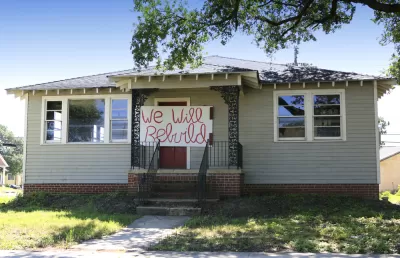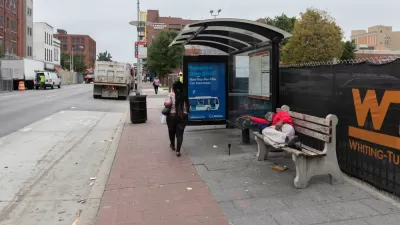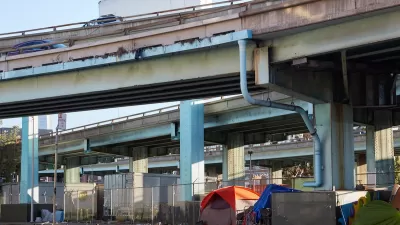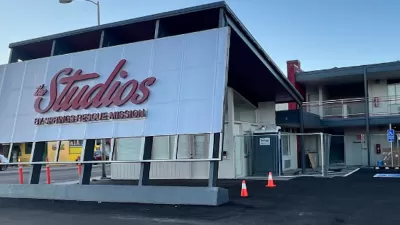Homelessness spiked in New Orleans after Hurricane Katrina. But the city has made substantial progress in providing housing and services to keep people off the streets.

New Orleans has reduced homelessness by 90 percent since 2007, when Hurricane Katrina left more than 11,600 people without places to live. WBUR reporter Jeremy Hobson interviews Martha Kegel, executive director of the non-profit coalition Unity of Greater New Orleans, about which strategies worked best to solve the city's crisis.
Because people continue to lose their homes—thanks, Kegel says, to gentrification and a lack of affordable housing—advocates use a metric called "functional zero," meaning that the number of homeless people never exceeds the number of people being rehoused. New Orleans has achieved functional zero in both veteran and family homelessness.
The basis of their success is a Housing First approach and wraparound services: first, provide people an apartment, and then provide services to ensure their stability and quality of life. Unity also went to Congress to procure a rental assistance fund.
Wraparound services can require comprehensive individual attention, so effectiveness at a large scale requires close collaboration among the Veterans Administration, the Housing Authority, and other organizations. But, Kegel notes:
"This is a very cost-effective approach: compare constantly cycling in and out of jail on charges that wouldn't even be relevant if they had an apartment, that are costing the taxpayers a lot of money … to a relatively small amount of money to pay for some rent assistance."
FULL STORY: How New Orleans Reduced Its Homeless Population By 90 Percent

Planetizen Federal Action Tracker
A weekly monitor of how Trump’s orders and actions are impacting planners and planning in America.

Chicago’s Ghost Rails
Just beneath the surface of the modern city lie the remnants of its expansive early 20th-century streetcar system.

San Antonio and Austin are Fusing Into one Massive Megaregion
The region spanning the two central Texas cities is growing fast, posing challenges for local infrastructure and water supplies.

Since Zion's Shuttles Went Electric “The Smog is Gone”
Visitors to Zion National Park can enjoy the canyon via the nation’s first fully electric park shuttle system.

Trump Distributing DOT Safety Funds at 1/10 Rate of Biden
Funds for Safe Streets and other transportation safety and equity programs are being held up by administrative reviews and conflicts with the Trump administration’s priorities.

German Cities Subsidize Taxis for Women Amid Wave of Violence
Free or low-cost taxi rides can help women navigate cities more safely, but critics say the programs don't address the root causes of violence against women.
Urban Design for Planners 1: Software Tools
This six-course series explores essential urban design concepts using open source software and equips planners with the tools they need to participate fully in the urban design process.
Planning for Universal Design
Learn the tools for implementing Universal Design in planning regulations.
planning NEXT
Appalachian Highlands Housing Partners
Mpact (founded as Rail~Volution)
City of Camden Redevelopment Agency
City of Astoria
City of Portland
City of Laramie





























